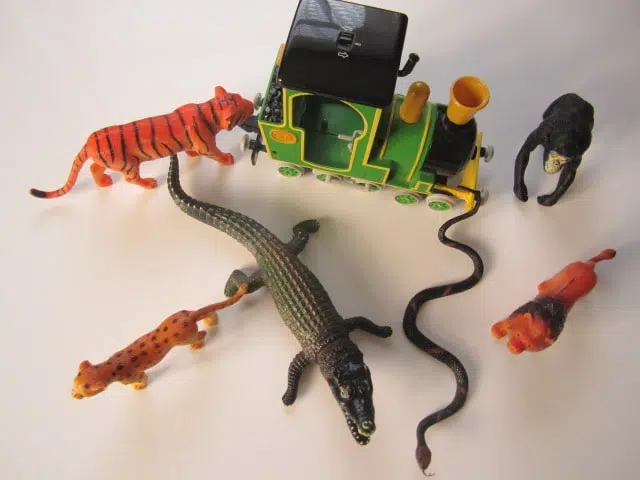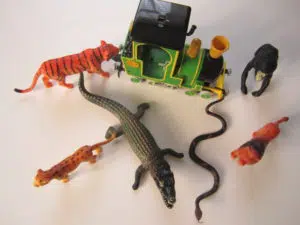Struggling to find alliteration activities? You’ve come to the right place; and can I just say that these games are spectacularly superb and seriously special!
Alliteration is something that children can begin to understand through repetition of enjoyable activities, many of which can just be thrown into your daily routine.
How do you teach alliteration?
Alliteration can be taught through a range of games and fun activities. Children can enjoy experimenting with repeating sounds in these games. You can make up stories with silly sentences using a target sound, and either have props to support the story or just get them to listen for the sound.
Games can be played with toys and props with the same initial sound. You can give children and characters alliterative names. Alliterative books are also a great introduction to alliteration and help children really understand this concept.

The order it should be taught
There is also a definite process and order to alliteration that goes like this…
i.) To start with the focus in alliteration games is for children to just be aware that there is something interesting about the sounds they are hearing. So if you say to a child ‘Look at the ssslithery, sssneaky sssnake sss’, they can hear there is something exciting and unusual going on with the way you are saying the words with the same initial sounds.
ii.) When this awareness grows through time, you then hope children will start to talk about the sounds they can hear, e.g. ‘s’ beginning sound in that example, and be able to experiment a bit themselves, following an adult’s lead.
iii.) The next step, is making up alliterative ‘silly sentences’ or ‘silly phrases’, such as ‘map mip mop mup’.
iv.) The final step is coming up with real alliterative words like ‘terrible tiger’.
Lots of the games and alliteration examples that I am about to describe address most of these skills, and can be played in an easier form, or a progressively harder form. The key to all the games is to make it fun! Teaching alliteration is fun! Plus, alliteration is a playful and enjoyable skill, and children need the freedom to experiment and give it a go without pressure.
Here are ten of my favorite alliteration activities and games for preschool (and beyond)…
1. Chanting alliteration words to music with actions
This is a great one for getting the children up and active! It is more of an adult-led activity, but it is perfect for children to achieve some success in alliteration because if they can copy, they can do it.
Firstly, put on some pumping music! Something the children like would be amazing, like One Direction or Little Mix!
I am perhaps slightly stuck in the old days and occasionally like to use a Michael Jackson or Daft Punk classic. But anything with a solid upbeat pulse will work.
Get the children to stand up and then give them a target sound.
For example, say ‘Today we are going to say ‘s’ words.’ Then start chanting a ‘s’ word on the beat of the music, and it helps to invent a little action to go with the word. For example, chant ‘sun, sun, sun’, and as you say the word draw around the sun with your hands. I like to chant either four or eight times (it just goes well with the music).
Then do another ‘s’ word, e.g. ‘slither’.
Chant and do a slithery arm to go with it! Other good ‘s’ words would be ‘see’ (put your pretend glasses on your eyes), ‘sit’ (point to the floor), and ‘slide’ (make your arm go down a slide). However, the list really is endless, and be as creative as you can with the letter sounds and beginning sounds.
After a few ‘s’ words move on to another sound for example is ‘t’. An extension of this game, is for the children to suggest words to you.
2. Tony Train
This is a real classic and fun game. Some children (as you’ve probably noticed) seem to be obsessed with trains more than anything else, so if you can get a train into a phonics activity then you are definitely on to a winner!
For this activity, you need a toy train, a few toy zoo animals, and a bag or box to hide them in. Introduce the train first. Say something like ‘This is Tony Train. He is going through the jungle. What does he see?’
I like to get them to say a chant with actions:
Tony Train! Tony Train! (With train arm actions)
What did you see today? (With hands like spectacles)
Then look secretly in the bag, and pick an animal.
Give alliteration clues!
Say things like ‘This animal is sssslippery! It is sssslimy. It is sssscaly! What do you think it is?’
Hopefully, someone might be able to guess it’s a snake, but don’t fear if they can’t! Show them the snake, and repeat some of the ‘s’ words, really emphasizing that ‘s’ sound.
Then try another animal, for example, ‘This animal is lllasy. It is llllovely. It is llllaughing. It’s a lion!’
An extension of this game is, can the children make up their own words?
Also, can they remember which animal is ‘lovely and laughing’ when all the animals are out of the bag?

3. A sound story
This is a good game that can be played by children with next to no awareness of alliteration all the way through to children who are accessing phase two phonics and beginning to read words.
Pick a ‘target sound’ again. For example, let’s say the target sound is ‘s’. Then make up a story with lots of words with the same beginning sound, in this case, ‘s’ sounds.
Say to the children ‘If you hear a ‘s’ then put your hands on your heads.’
You can really emphasize the sound to start with, but you could make it less obvious if the children get better at the game.
An example of a story could be…’One day Steve the Snake went to the sandy beach. He saw a sea serpent in the sea. The serpent jumped out and slithered towards Steve. He tried to slice him with his teeth!…(etc)
But just go for it, and make alliteration examples. An extension is that the children add to the story themselves with relevant words and with their own silly sentences using the target sound.
These kinds of stories are also fantastic for teaching phonemes when children are beginning to learn to read. To find out what a phoneme is, and the best ways to teach it, take a look at this.
4. Give children alliterative names
This is a good alliteration activity to just throw into your normal routine. Instead of calling a child ‘Billy’, call them something alliterative like ‘Brilliant Billy!’
They will like the compliment and some find it very funny as well, which is not a bad thing! The funnier things are, the more children like to repeat them.
Some sounds are harder than others to think of names for, but ‘silly’ names are fine for this too. You can keep the same names for each child if you are really organized, but I always just make them up as I go along, so you always get lots of variations.
5. Sound bags
This takes just a bit of preparation beforehand, but just like any phonics activity, repetition is definitely a good thing, so the time is well spent in preparing an activity that you can use a few times.
Have a bag (or box) and put into it a few items that begin with the same sound. For example, for a ‘p’ bag you could have a parrot, a pencil, a pink plate, a pirate etc, etc. Just put in what you can find.
Then you tell the children you have a ‘p’ bag and everything starts with ‘p’. If the children are at that stage, get them to all say the sound, and maybe look at their friend’s mouth next to them to see how they say the sound ‘p’.
I like to ask them if they think the sound is coming out of the front or the back of their mouth.
Then make up the story, getting children to pick an object out of the bag one at a time. It could be something like ‘Pete the parrot flew off his perch and out the window. He saw…a princess. She had…a pink plate!’
An extension for more able children is for them to either suggest things or find items for the bag.
6. Make alliterative aliens
This activity is good when children have an awareness of hearing alliteration and are ready to move on to the task of coming up with their own alliterative sentences or ‘silly’ alliteration words.
It is easier to make up silly words than real ones because you do not have to think of relevant vocabulary. You are simply playing with sounds, and children generally enjoy this.
This is an excellent introduction to nonsense words. To find out the best ways to teach nonsense words then check this out.
For this activity, get them to make aliens in many different ways – playdough, junk modeling, and construction. When you have created your aliens you simply give them alliterative names. Things like ‘Ziggy Zoggy Zoo.’ ‘Minny Manny Moo.’
I like to feed children different sounds, like ‘t-t-t-…’ and get them to start saying words with that sound. The more you model and give children an idea of what is expected, the more chance they have of getting involved and coming up with silly words.
Aliens are great for this because they naturally have silly names.
7. Draw pirates, dinosaurs, monsters, witches and robots
This is a similar activity to the alien one and is good for either making models or mark making. In the mark-making form of this game, you can use big chalks on the ground outside, or big pens on wallpaper.
Get the children to draw different things that suit having a silly name. Good examples are pirates, robots, witches, monsters and dinosaurs, though you may be able to think of other things.
When they have drawn them (and they don’t have to look like much!) go about the process of giving them silly alliterative names. So the robot could be ‘Biggy Baggy Beggy Boggy’. There is no right or wrong. Just chant the target sound at them, and emphasize like crazy!
I tried this alliteration activity but adapted where the children made loose parts models of different characters. This is one of forty fantastic loose parts play activities that you can find here.
8. Tongue twisters
Children often find tongue twisters hilarious, and they are also great for ironing out speech and language issues, as well as being an excellent medium to teach alliteration.
I like to add actions or a bit of drama to tongue twisters. An example of one of these types of tongue twisters is:
Little lambs are leaping! (All jump around like lambs)
Little lambs are lazy. (Lie down)
Little lambs are lonely. (All be sad)
Little lambs are lost… etc.
9. I Spy
This classic game is a must for alliteration.
This is one to play when children are already skillful in alliteration and have tried many of the other games already and found success. To make the game easier, you can give clues that all have the same sound.
For example, if it is the ‘sky’, don’t just say, ‘I spy something beginning with ‘s”. Give more ‘s’ clues, such as ‘I spy something that is ssso clear. I can ssssee it out there (point). It has sssome ssseagulls flying in it.’
10. Reading books with alliteration in and emphasize the sounds
This is one of the best ways of bringing an initial awareness of alliteration into children’s lives.
Many books really hammer home alliteration and make it a joyful thing to experience. Some of my favorite examples of these books are Superhero ABC, Bedhead, Dr. Seuss’s ABC, and Some Smug Slug.
All of these books can act as a starting point for alliteration-inspired activities and continuous provision enhancements.
Conclusion
Alliteration can be taught in a wide range of ways, and using only a few simple props. Stories can be made up or read aloud that really support the skills required in developing an awareness of alliteration.
In the early days, it is more about hearing that alliteration is happening, rather than making up your own words. Fun games that help play with words and sounds really help, such as having alliterative names for children and characters.
READ MORE

justin
Tuesday 22nd of August 2023
i really love it.